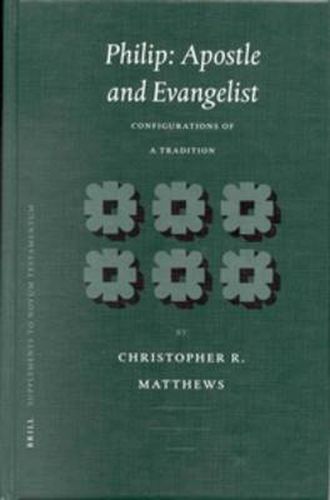Readings Newsletter
Become a Readings Member to make your shopping experience even easier.
Sign in or sign up for free!
You’re not far away from qualifying for FREE standard shipping within Australia
You’ve qualified for FREE standard shipping within Australia
The cart is loading…






This study investigates the history of the traditions that coalesced around the name Philip in the New Testament and other early Christian literature. It proposes that all of this material ultimately owes its genesis to one historical and literary figure, Philip the apostle. This proposition is explored through a wide-ranging examination of the evidence: Luke’s redactional employment of traditional materials about Philip the apostle in Acts 8:4-25 and 8:26-40, the evidence of the canonical Gospels, the second-century perspective on Philip as an apostolic authority figure invoked to legitimate various Christian practices, Philip’s apostolic authority in gnostic documents for the transmission of the revelatory teaching of Jesus, and the Acts of Philip as a witness to the formation of Christian culture in the earliest centuries. While historical issues are considered where possible, the focus is on the life of the traditions and their reception.
$9.00 standard shipping within Australia
FREE standard shipping within Australia for orders over $100.00
Express & International shipping calculated at checkout
This study investigates the history of the traditions that coalesced around the name Philip in the New Testament and other early Christian literature. It proposes that all of this material ultimately owes its genesis to one historical and literary figure, Philip the apostle. This proposition is explored through a wide-ranging examination of the evidence: Luke’s redactional employment of traditional materials about Philip the apostle in Acts 8:4-25 and 8:26-40, the evidence of the canonical Gospels, the second-century perspective on Philip as an apostolic authority figure invoked to legitimate various Christian practices, Philip’s apostolic authority in gnostic documents for the transmission of the revelatory teaching of Jesus, and the Acts of Philip as a witness to the formation of Christian culture in the earliest centuries. While historical issues are considered where possible, the focus is on the life of the traditions and their reception.